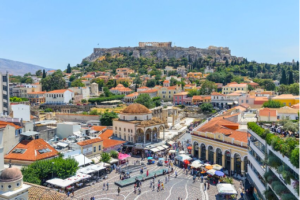
“Achieving big goals requires you to become a bigger person. You must develop new habits, abilities, skills, and attitudes. You must stretch yourself, and in so doing, you will be forever stretched.” – Vic Johnson

“Achieving big goals requires you to become a bigger person. You must develop new habits, abilities, skills, and attitudes. You must stretch yourself, and in so doing, you will be forever stretched.” – Vic Johnson
To conflate is to fuse or confuse. To bring different things together and fuse them into a single entity – and, by extension, mistakenly treat them as equivalent. Example: “It is easy for those who conflate religion with government to interpret any criticism of government or policy as an ‘attack’ on their ‘faith’.” (Christina Engela in Loderunner)
Re Critical Race Theory:
“Have you read How to Be an Antiracist by Ibram X. Kendi or White Fragility by Robin DiAngelo?” – AG
My response:
Yes. I read both of them. And I’ve mentioned both of them here on the blog.
They are… how shall I put it? Just plain dumb.
CRT attributes all racial inequities to racism. Not work. Not study. Not integrity. Not ambition. The only reason one ethnic group is richer or poorer than another is because of institutional racism.
But don’t ask a proponent of CRT why it is that Blacks from Nigeria or many parts of the Caribbean outperform African Americans, Hispanics, and even White Americans in many important financial metrics. Just asking the question, they will tell you, means you are racist.
Click here for John Stossel’s comments on these two books.
Why did Russia invade Ukraine? Bill Maher and Ben Shapiro try to make sense of it…
The parents were immigrants from Korea…
They barely spoke English. But by the time I knew them, they had a small business. A sandwich shop across the street from Agora’s first headquarters, in a predominantly African American neighborhood in East Baltimore.
The shop was open from 6:00 in the morning to 7:00 in the evening. It was where our employees bought breakfasts, lunches, and sometimes packaged dinners when they were working late. The parents were there every day. Six days a week. From opening to closing. Their kids were there all day on Saturdays and on weekdays. When the eldest child went to college, she worked only Saturdays and her sisters picked up the slack. After she graduated, she worked full-time while the next child went off to college. And when that child graduated, she went on to pursue her career.
All three children went on to become doctors or lawyers. And when they were making the big bucks, they bought their parents a nice house where they could live out their retirement in comfort and happiness, with lots of time for the grandkids.

What I Believe: About Family Culture
Good parents want to see their children exceed them. They want to see them attain heights they never reached. This is natural. It’s DNA. And it’s the impulse that creates what is often derisively referred to as “family values.” Parents sacrificing for their children and children reciprocating by caring for their parents when they are old is the core ethic of family-based cultures. It is also the reason some cultures have more success. It’s why Asians and Jews, to name two ethnic/cultural groups, outperform other groups in every category: education, longevity of family relationships, income, savings, and net worth. It is also why, where family culture is weak, those same measures of social success plummet. And it is why institutional attempts at “affirmative action” that ignore family culture generally make matters worse.
COVID Outbreak in China
Tens of millions of residents across China are under lockdown as the country grapples with its worst reported COVID-19 outbreak since the beginning of the pandemic. Officials recorded almost 3,400 new cases Sunday, double the previous day, with the virus spreading in 18 provinces. Some have argued the country’s zero-tolerance approach and reliance on viral vector vaccines has left it vulnerable to the more transmissible omicron variant.
Meanwhile, cases in the US have fallen to around 36,000 per day – still 10 times higher than the spike in China. And researchers are saying that the omicron BA.2 subvariant is unlikely to spur a new surge in infections.
Responding to Change
The information publishing industry, like all industries, has been changing since the internet revolution took hold for real at the turn of the century. It went through a major change from 2000 to 2020, and another one from 2010 to 2020. In the last two years, it’s been changing again, and is affecting the content of the information we provide in fundamental ways.
In an interview I did recently with John Newtson from the Financial Marketing Summit, I explain what I believe are the key changes and how businesses like ours must respond to them.
You can watch the interview here.
Athens, Greece

Kathy and I traveled first to Europe for several weeks after completing my two-year, Peace Corps stint in Africa. One of our favorite cities was Athens. We’ve been back only once since then, and it was terrific. It’s a city we will travel to again.
What I Like About Athens
All 10 of the following must-see tourist sites:
* Acropolis
* Acropolis Museum
* Parthenon
* Ancient Agora and Temple of Hephaestus
* Theatre of Dionysus
* Tower of the Winds in the Roman Agora
* views from Mount Lycabettus
* Panathenaic Stadium
* Church of Panagia Kapnikarea
* Philopappos Hill
Plus…
* Plaka (a very cool neighborhood)
* drinks at a rooftop bar at the end of the day
* Kerameikos (if you like cemeteries)
* National Archaeological Museum (if you like ancient architecture)

Interesting: Russia deploys at least 1,500 warheads on hundreds of missiles based on air, land, and sea platforms that can strike the entire US. Russia also is developing “novel” capabilities that can strike the US, like hypersonic missiles and a nuclear-powered cruise missile and torpedo.
Equally interesting: The United States maintains a nuclear triad that can strike all of Russia, providing a strong deterrent to a Russian attack.
Unsettling: The difference is that while Russia has modernized its nuclear forces about 90% of the way through, the US still relies on platforms built during the Cold War.